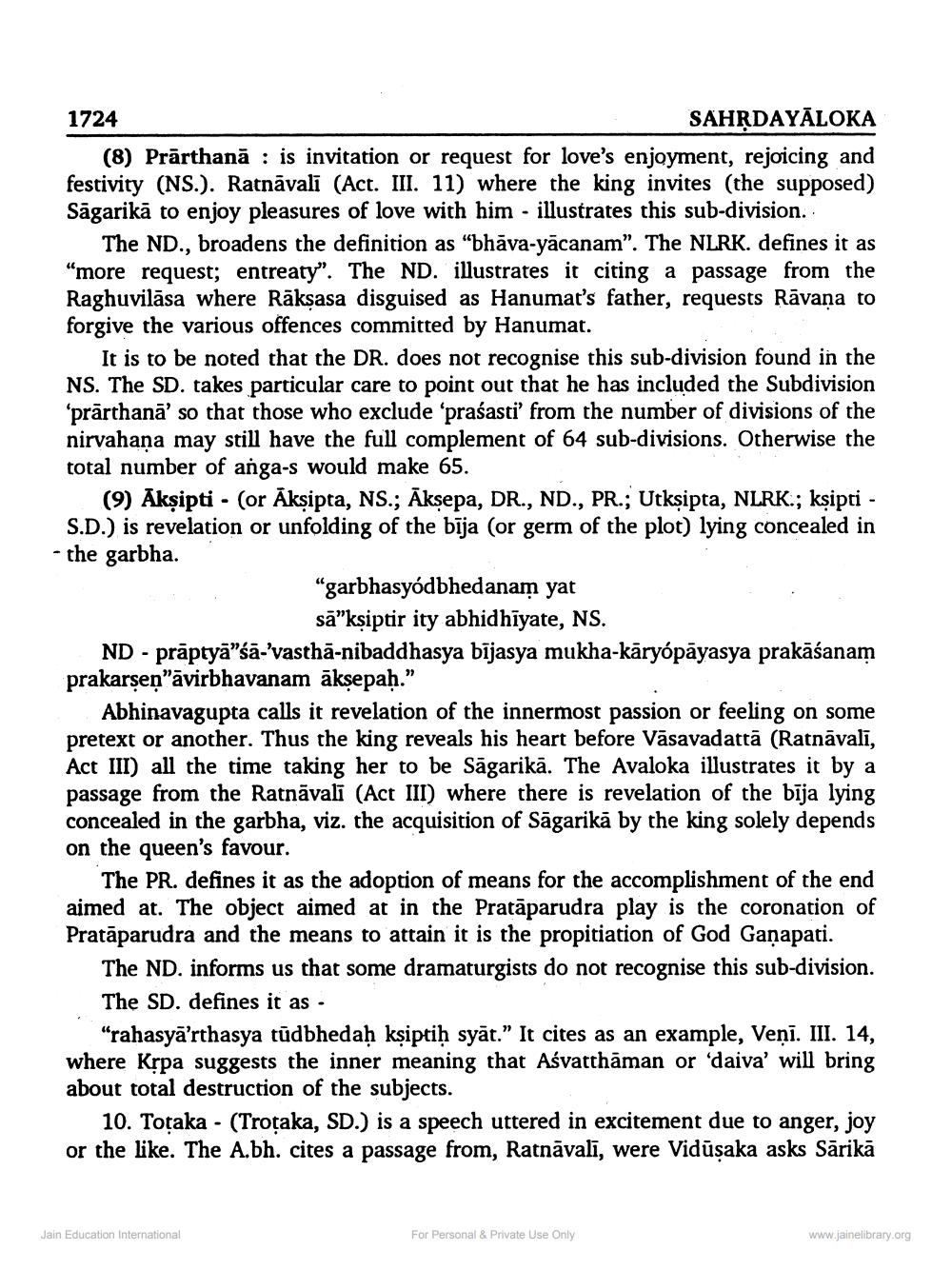________________
1724
SAHĶDAYĀLOKA (8) Prārthanā : is invitation or request for love's enjoyment, rejoicing and festivity (NS.). Ratnāvali (Act. III. 11) where the king invites (the supposed) Sāgarikā to enjoy pleasures of love with him - illustrates this sub-division..
The ND., broadens the definition as “bhāva-yācanam”. The NLRK. defines it as "more request; entreaty". The ND. illustrates it citing a passage from the Raghuvilāsa where Räksasa disguised as Hanumar's father, requests Rāvana to forgive the various offences committed by Hanumat.
It is to be noted that the DR. does not recognise this sub-division found in the NS. The SD. takes particular care to point out that he has included the Subdivision prārthana' so that those who exclude 'praśasti' from the number of divisions of the nirvahana may still have the full complement of 64 sub-divisions. Otherwise the total number of anga-s would make 65.
(9) Akşipti - (or Akşipta, NS.; Āksepa, DR., ND., PR.; Utkşipta, NLRK.; kşipti - S.D.) is revelation or unfolding of the bīja (or germ of the plot) lying concealed in - the garbha.
"garbhasyódbhedanam yat
sā”kşiptir ity abhidhīyate, NS. ND - prāptyā”sā-'vasthā-nibaddhasya bījasya mukha-kāryópāyasya prakāśanam prakarsen"āvirbhavanam ākṣepaḥ."
Abhinavagupta calls it revelation of the innermost passion or feeling on some pretext or another. Thus the king reveals his heart before Vāsavadattā (Ratnāvalī, Act III) all the time taking her to be Sāgarikā. The Avaloka illustrates it by a passage from the Ratnāvalī (Act III) where there is revelation of the bīja lying concealed in the garbha, viz. the acquisition of Sāgarikā by the king solely depends on the queen's favour.
The PR. defines it as the adoption of means for the accomplishment of the end aimed at. The object aimed at in the Pratāparudra play is the coronation of Pratāparudra and the means to attain it is the propitiation of God Ganapati.
The ND. informs us that some dramaturgists do not recognise this sub-division. The SD. defines it as .
"rahasyā'rthasya tūdbhedah kşiptih syāt.” It cites as an example, Venī. III. 14, where Krpa suggests the inner meaning that Aśvatthaman or daiva' will bring about total destruction of the subjects.
10. Totaka - (Trotaka, SD.) is a speech uttered in excitement due to anger, joy or the like. The A.bh. cites a passage from, Ratnāvalī, were Vidūsaka asks Sārikā
Jain Education International
For Personal & Private Use Only
www.jainelibrary.org




